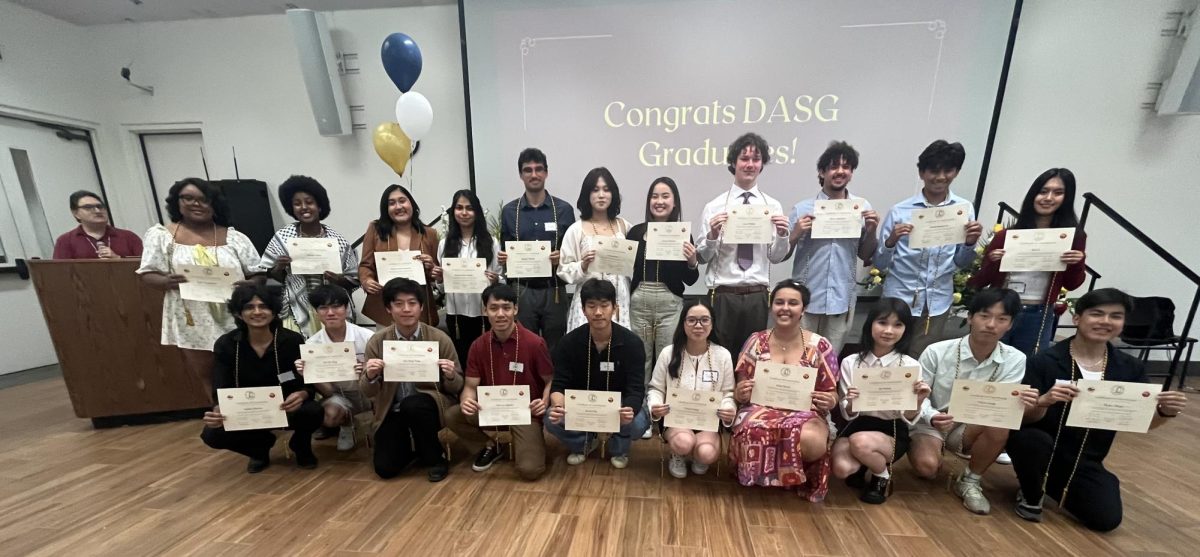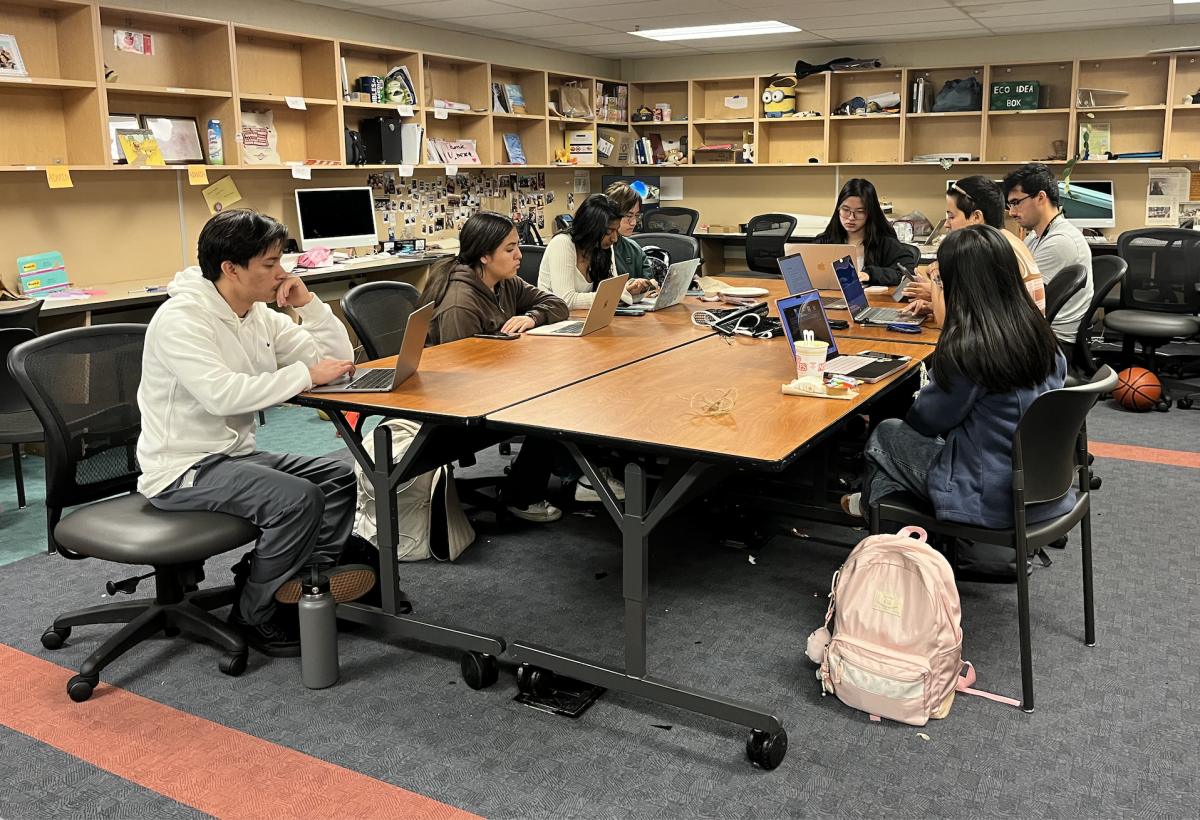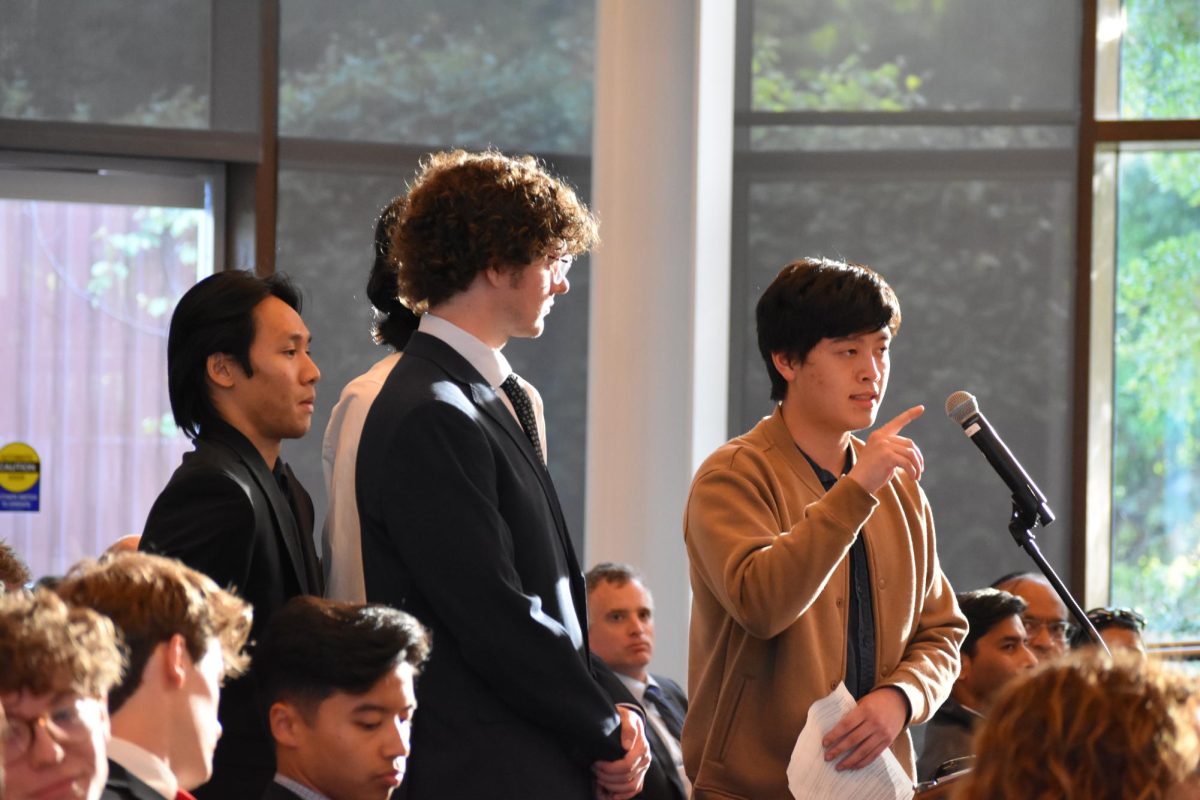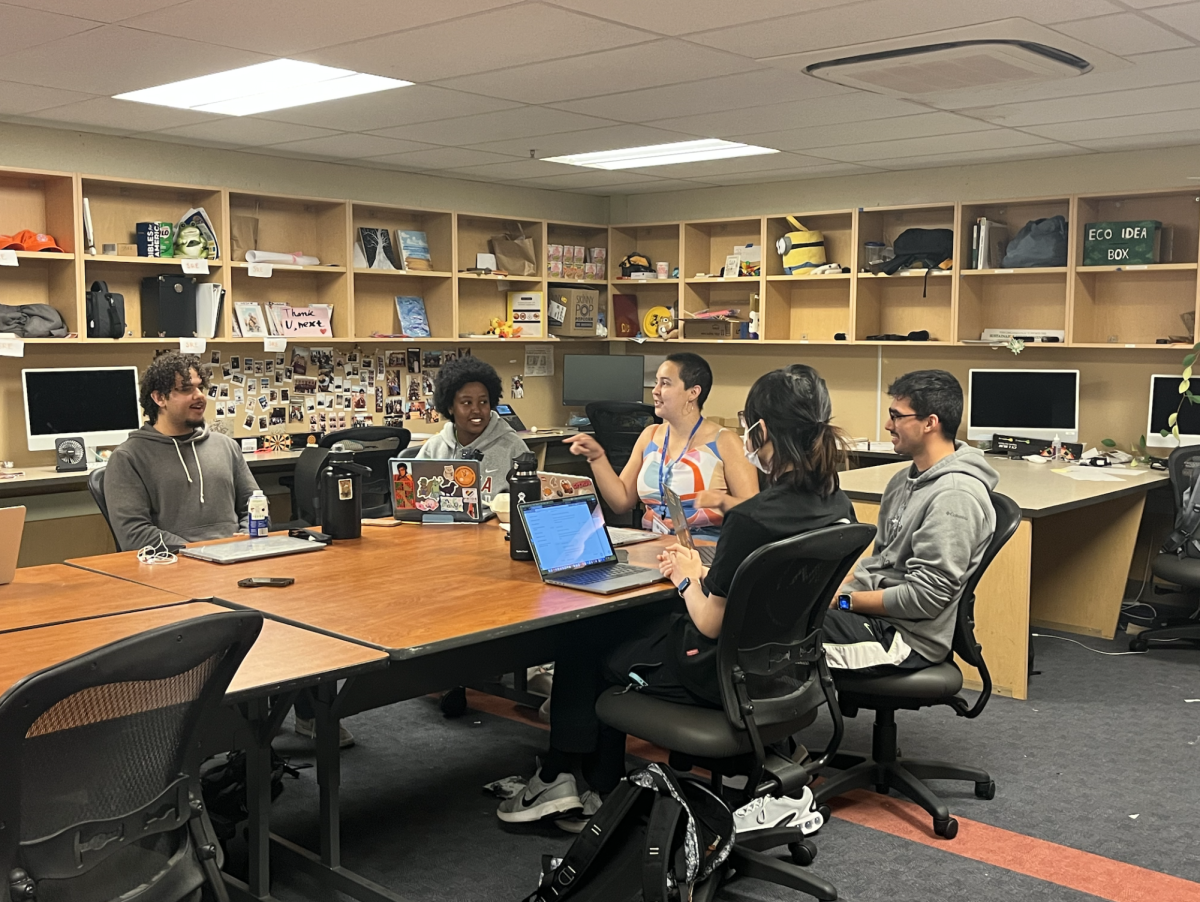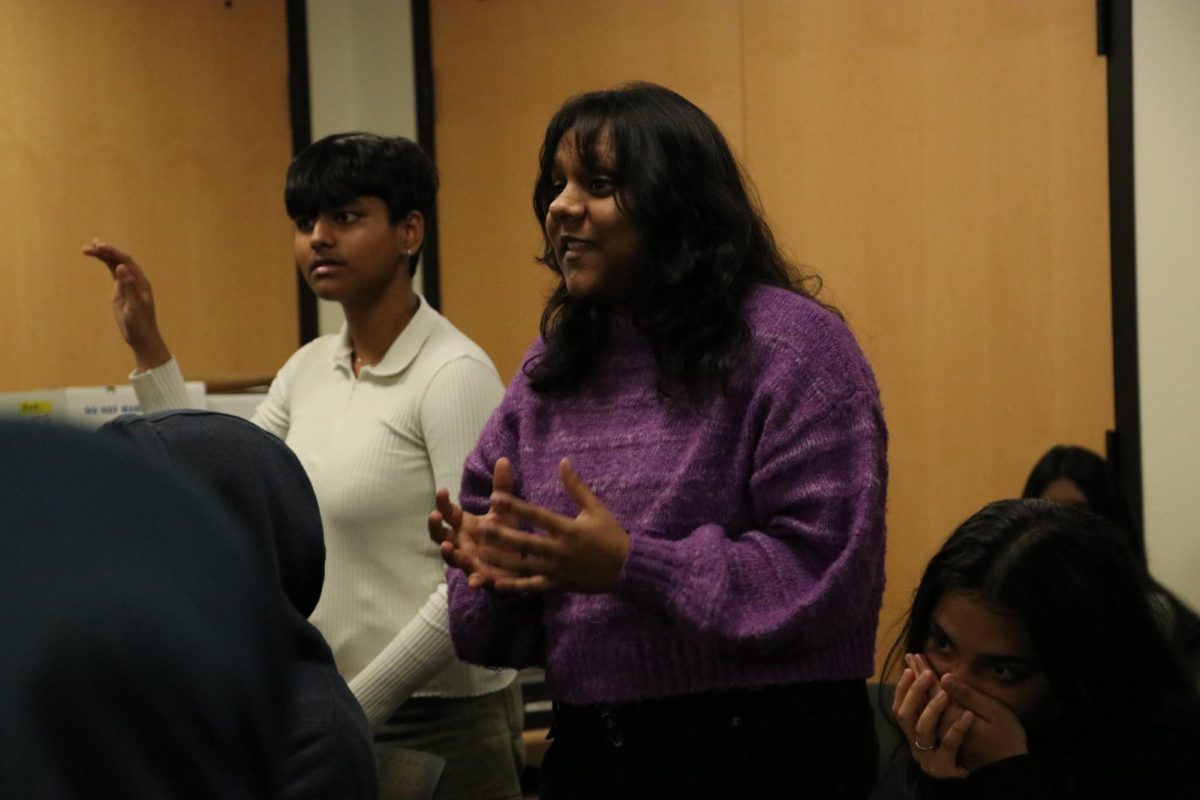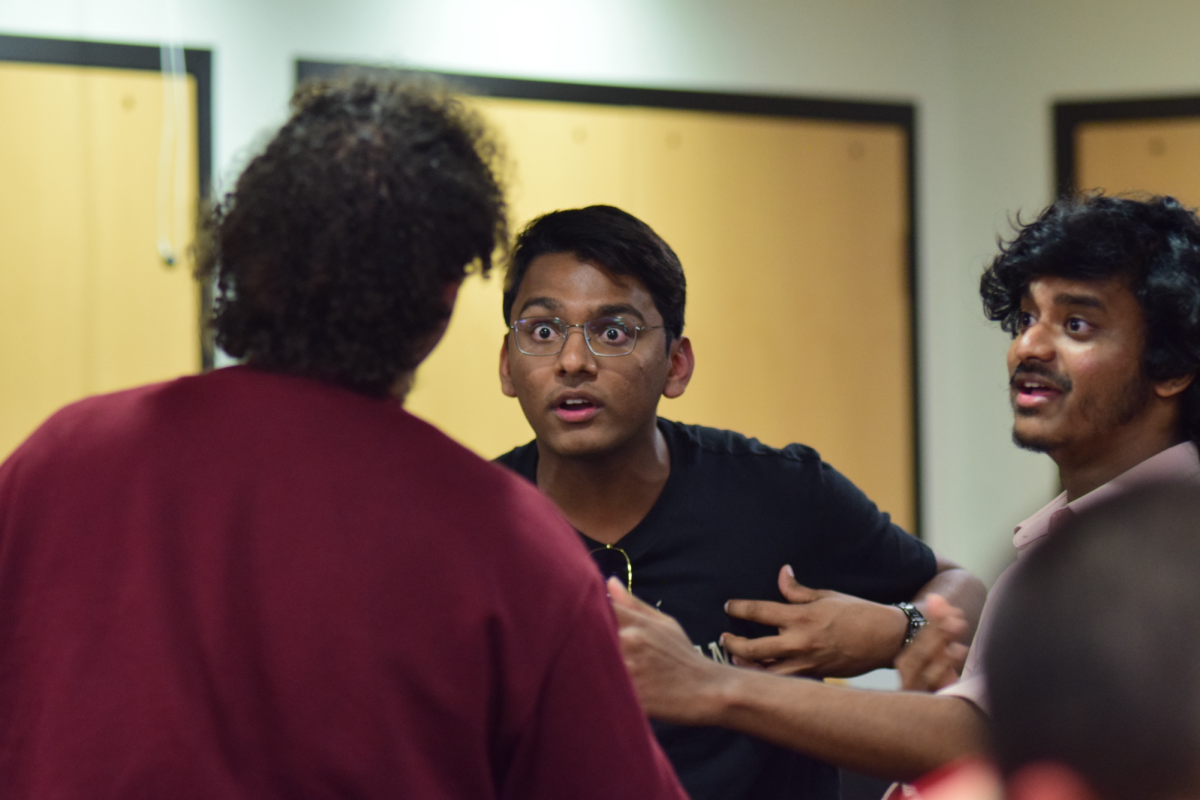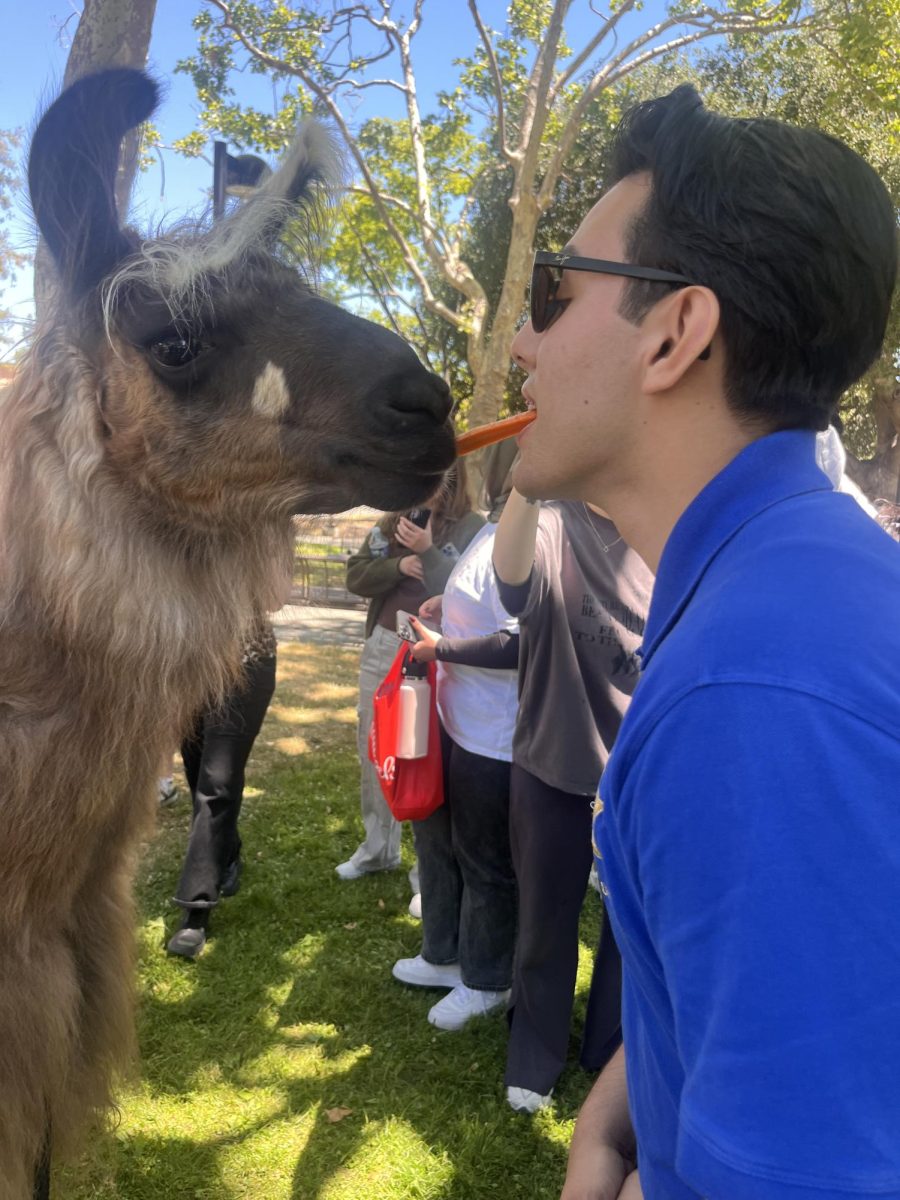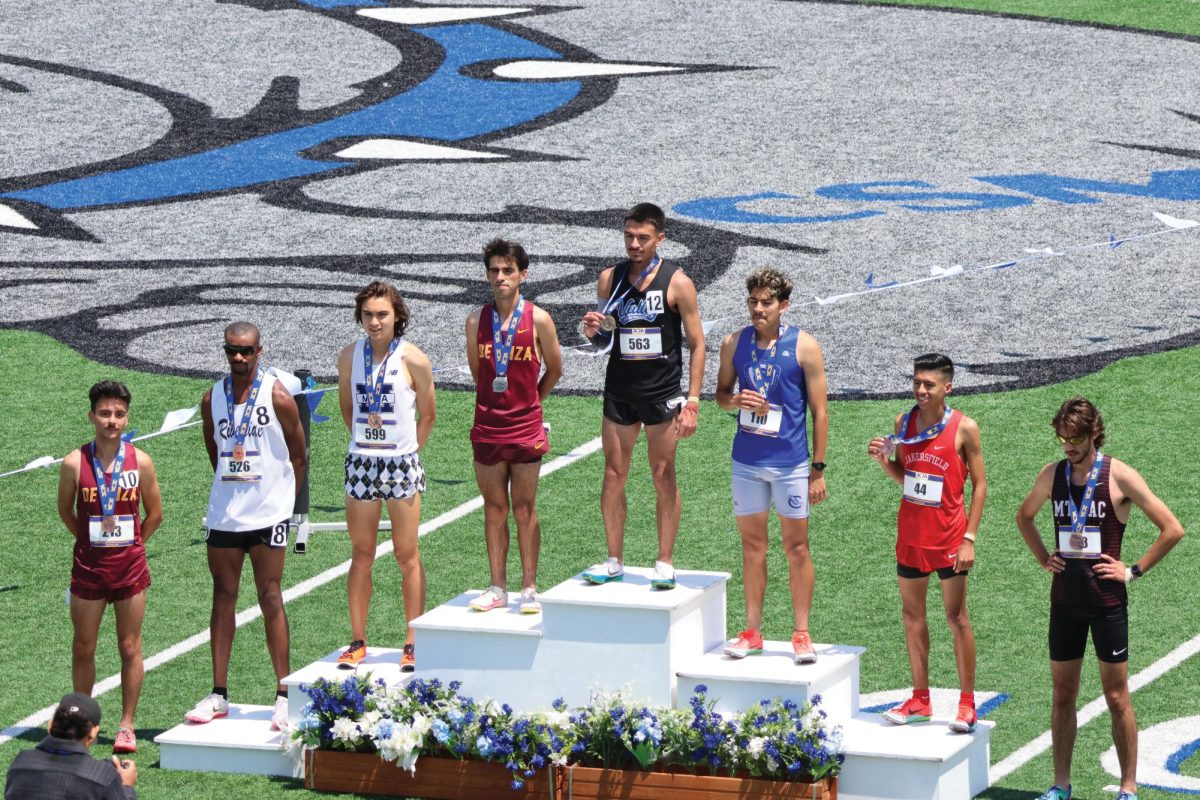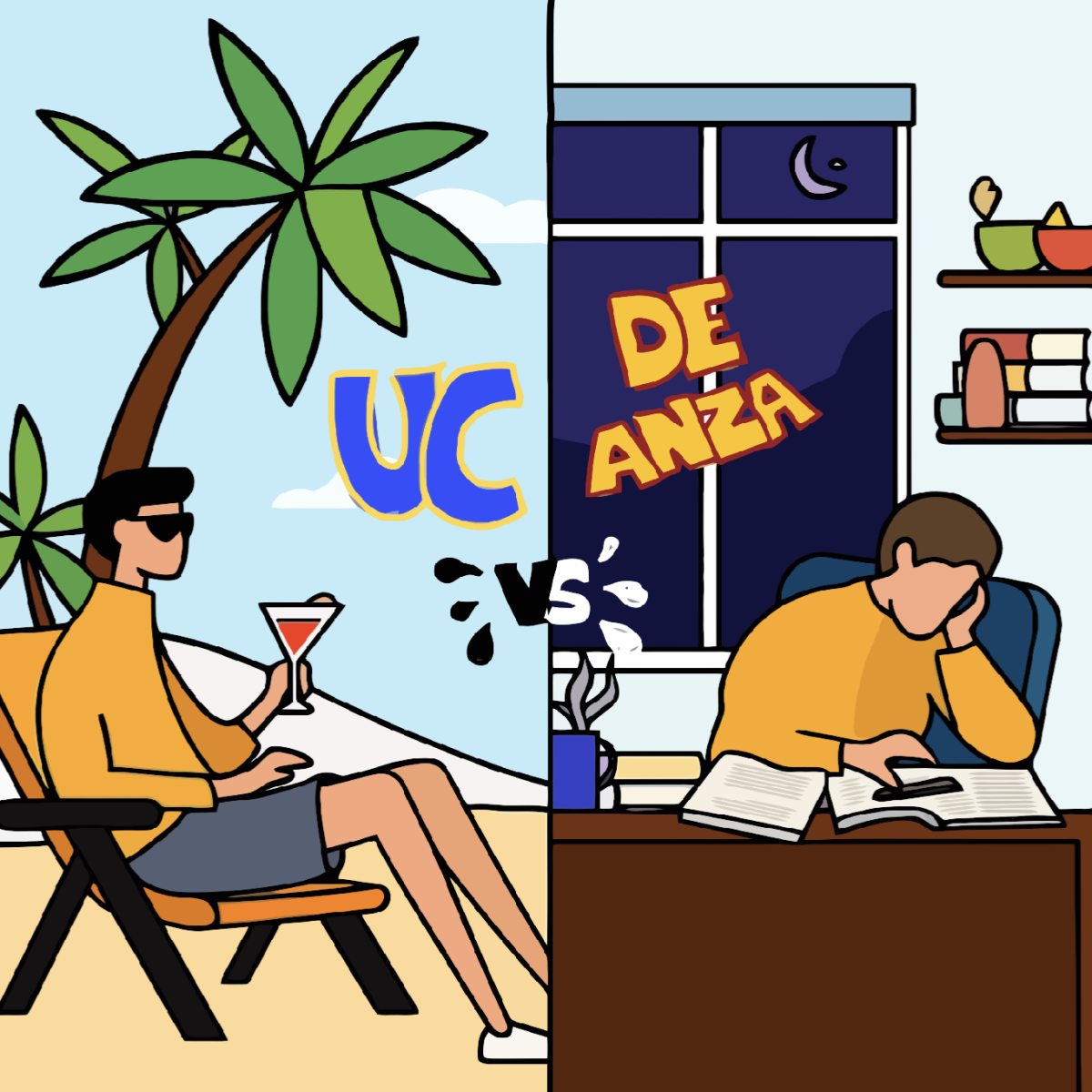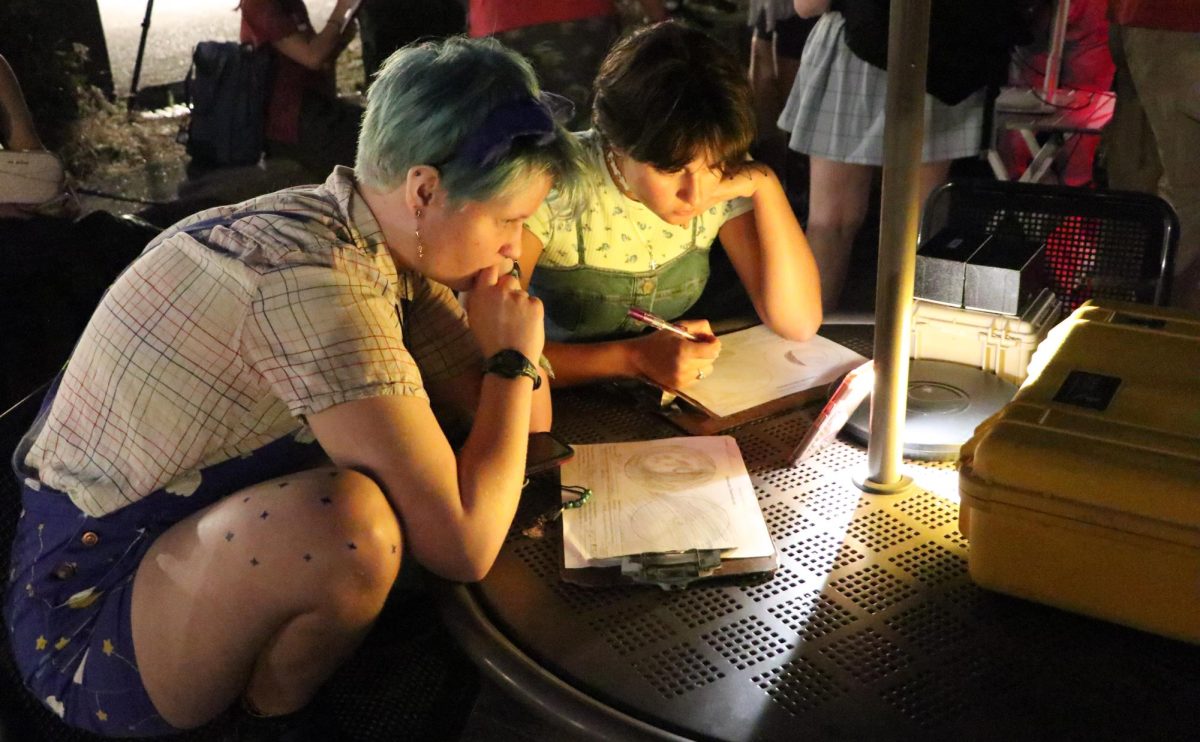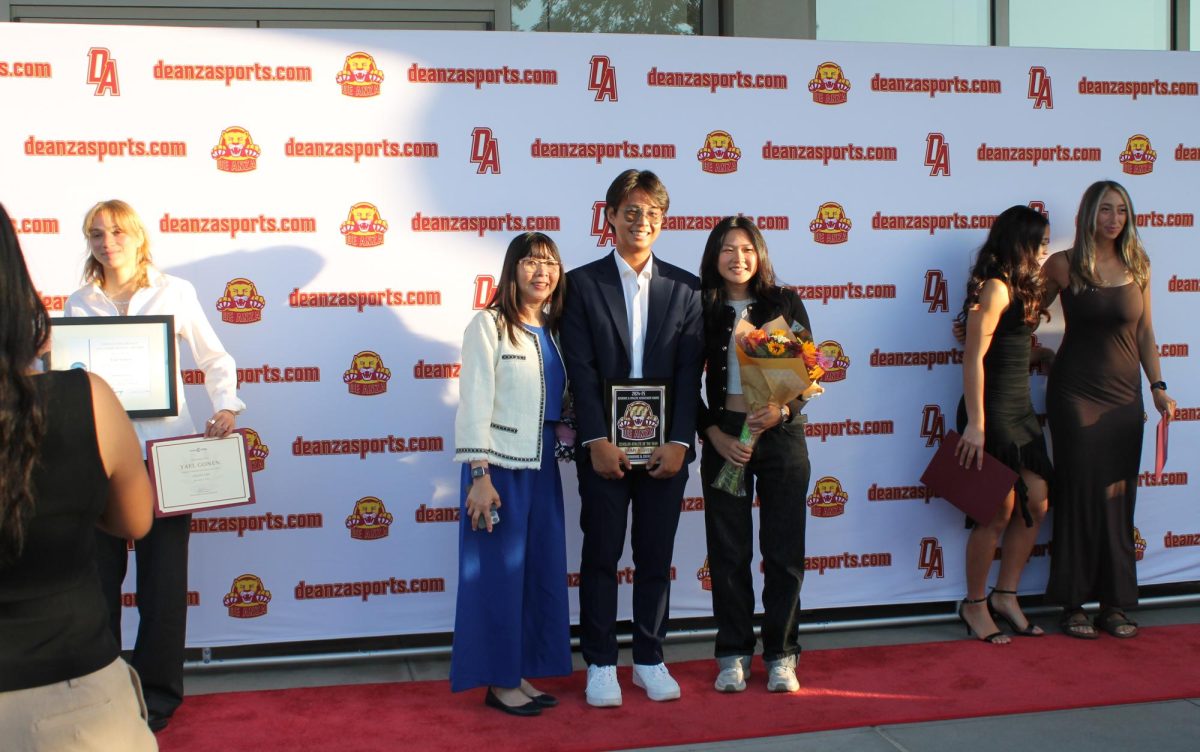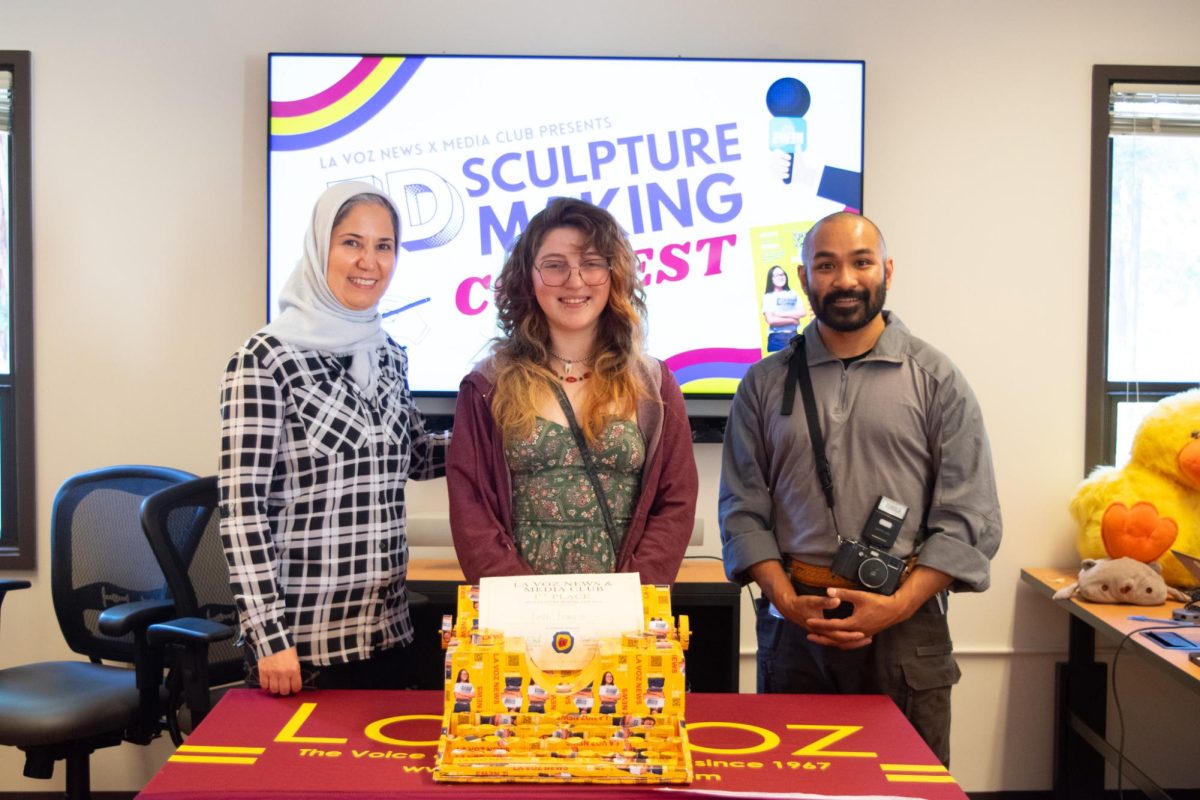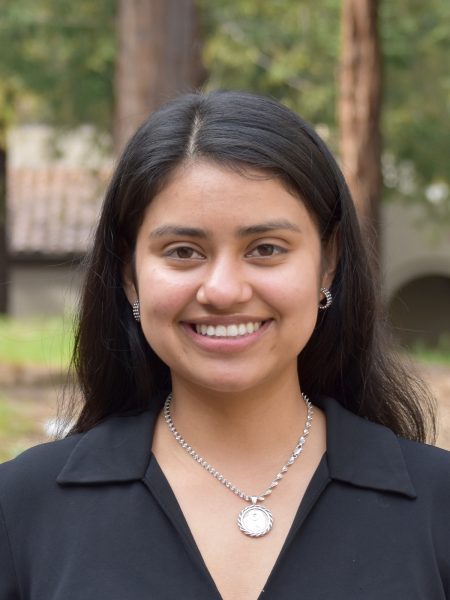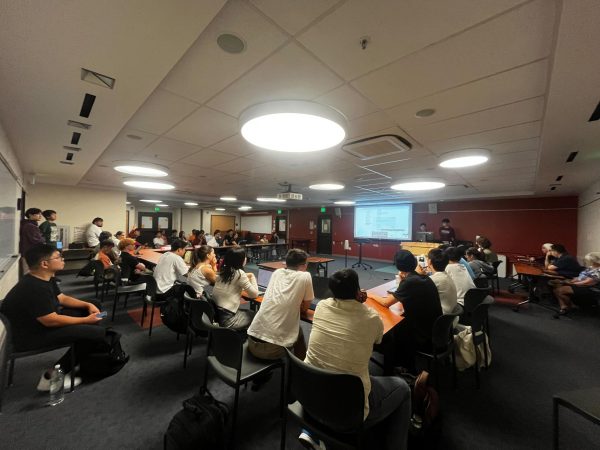
32 prospective student interns filled the Student Council Chambers on Sept. 30 to attend the De Anza Student Government Finance Committee’s first meeting of the 2024-25 school year. Business items included; Ice Breaker and Welcome, New Finance Video, Budget Request Form and Finance Fund 46 Webpage that aims to inform students of optional $2 fee.
The committee meets weekly, 4 p.m. to 6 p.m. Community members may be present, in-person or virtually and may address the committee during public comments. The meeting follows an agenda made public via the DASG Finance Committee website. Voting members of the committee, DASG President, Finance Chair, Vice Chair and three Budget Analysts follow Robert’s Rules of Order.
“The finance committee is very respected and important,” DASG President Luca Paliska, 20, a computer science major, said in a public comment. “It (the committee) is rewarding if you become an intern, potentially a senator in the future; however, it is a decent amount of work.”
The internship is an unpaid, non-voting position within the committee for students who meet eligibility requirements, including maintaining at least a 2.0 cumulative GPA and enrolling in at least eight units every quarter.
“The interns (will) work under the internal officers (of the Finance Committee),” Dennis Shannakian, the committee’s faculty advisor, said. “The (biggest thing finance interns will handle is) budget deliberations, they do interviews of different programs that have funding or are requesting funding. Other than that, they (the interns) work on other special projects.”
At 4:23 p.m., DASG Finance Committee Chair, Aditya Sharma, 18, an electrical engineering and computer science major, introduced the new marketing video and opened the floor to suggestions after showing the production.
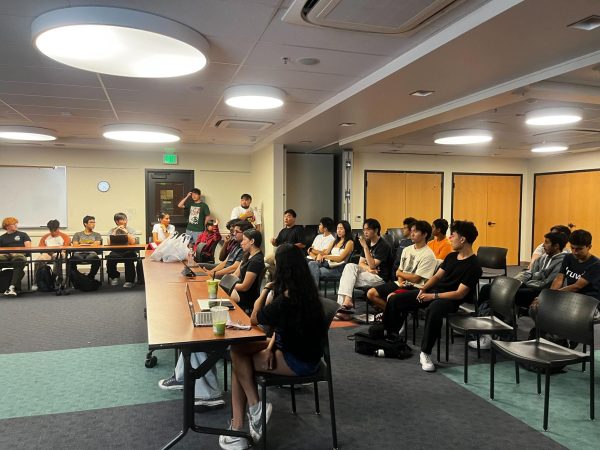
Seven minutes later, Yan Ming Teng, 19, an economics major and budget analyst, began sharing the edits to the Budget Request Form, which helps the committee make budget allowance decisions.
Zachary Ho, 23, an economics major and budget analyst, introduced three new evaluation criteria for programs requesting funds; Diversity, Equity, Inclusion (DEI), impact and environmental sustainability. “These (new criteria) ensure that (funding) the program aligns with the budget guiding principles,” Ho said.
The committee then presented its new informational webpage for the Fund 46 Student Representation Fee at 5:10 p.m. as its final business item.
When enrolling every quarter, students are presented the opportunity to pay, or decline to pay two dollars into Fund 46.
The prospective interns present made multiple suggestions on how to make the information accessible at the time of enrollment.
Half of the funds go to the California Community College Chancellor’s Office, which includes a statewide Board of Trustees who represent the community college system at the state level, as well as the Student Senate for California Community Colleges, representing DASG and other community college student governments at the regional and state level.
The other half of Fund 46 supports the Faculty Association Political Action Committee Internship, Vasconcellos Institute for Democracy in Action, Public Policy School and California Community College Advocacy & Policy Conference.
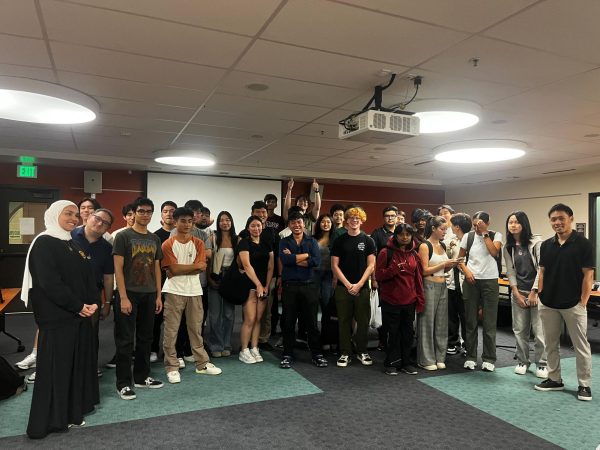
From July to August, De Anza students cumulatively paid a total of $25,254.67 to Fund 46. Figures for any enrollment since then have not been calculated yet, as enrollment is still open to students until Oct. 6 and open to faculty until Oct. 12..
The meeting adjourned at 5:30 p.m. as the group gathered for a photo.
“I got a good vibe of not only what we do here, but also how people interact with each other,” Ash Gupta, 17, an economics major and prospective finance committee intern, said. “There was an attempt to (establish roles): ‘We’re senators, you are the interns, but you guys have an equal voice in the conversation.’”





